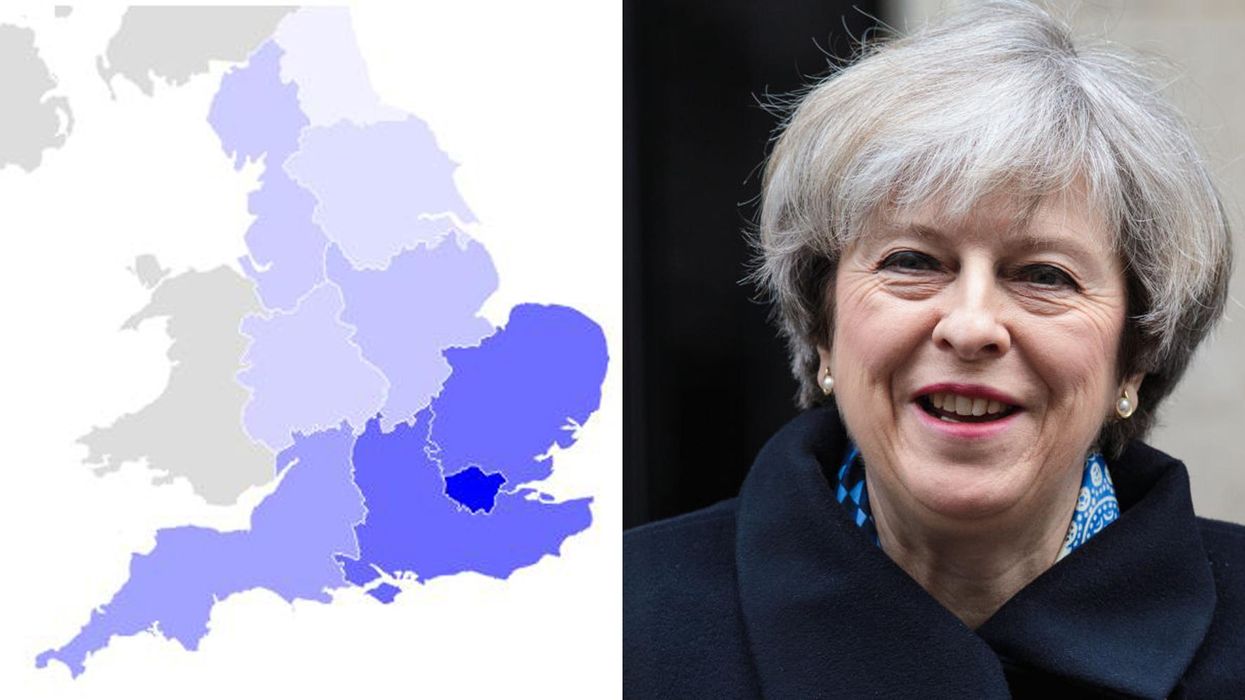
On Wednesday, the House of Lords passed an amendment to the Government's (incredibly short) Article 50 bill to include a provision that workers from the EU who are currently in the UK would be allowed to stay after Brexit.
During the (also incredibly short) Conservative party leadership race, Theresa May refused to confirm European Union (EU) workers would be granted the right to stay in the UK, a policy by which she has stuck even in the face of opposition from the House of Lords.
Conservative peers do not hold a majority in the unelected chamber, and a coalition of Lib Dem, Labour, rebel Conservative, and cross-bencher (none partisan) Lords were able to force the amendment.
The amendment states that within three months of triggering Article 50, ministers must put forward proposals that workers, and their families, from the EU or the European Economic Area (EEA) who are legal residents of the UK on the day Article 50 act is passed, must continue to be so.
It passed by 358 votes to 256.
The Lords’ amendment now returns to the House of Commons, where MPs will vote on whether or not accept it.
Previously the Commons rejected a similar amendment by 332 to 290 votes.
NHS workers from the EU
Of the EU migrants under threat of losing their right to work in the UK, many work for the National Health Service in England.
Campaigners in favour of the amendment have cited these figures from NHS Digital, which have recorded the number of NHS workers who come from countries in the European Economic Area (EEA).
The EEA consists of the EU, as well as Norway and Liechtenstein.
Adult social care
An even greater proportion of adult social care workers in England are from EEA countries.
The pressure group Skills For Care define it as being 'about providing personal and practical support to help people in a care home, in the local community, in a hospital or from someone's home'.
In statement the chair of the Trades Union Congress Frances O'Grady said:
The government is creating appalling uncertainty for thousands of NHS workers and care workers.
It’s a terrible way to treat dedicated public servants. And if Brexit means they have to leave, our health and social care services will struggle to cope.
The prime minister should guarantee EU citizens living and working in Britain the right to remain in the UK – and she should do it now, ahead of negotiations. It’s the right thing to do. And it will regain some of the goodwill Britain needs to negotiate the best possible Brexit deal.
Where in the world do the NHS migrant staff come from?
At least 200 nationalities are present in NHS England’s staff. The below chart excludes ‘unknown’ which constitutes a further 106,413 people.
Workers who identified as British constituted the largest known demographic, 994,693.
EEA nationals make up seven of the top fifteen foreign nationalities working for NHS England.
Where in the EU do the NHS workforce come from?
Irish nationals make up the largest group of EU nationals working in the NHS, followed by Poland, Spain, and Portugal.
The smallest is Luxembourg, which makes sense considering it is one of the smallest European countries in terms of population and size.
Under threat?
According to Sky News, 2.7 of the 3.5 million EU nationals in the UK already have a broad right to permanent residence, having lived in the UK for five years.
However, figures the University of Oxford's Migration Observatory suggest there are 85,242 EU citizens in a backlog of applications for both permanent residence and certificates proving current residence.
In August 2016 the Institute of Public Policy Research (IPPR) suggested that NHS workers from EU countries should be given automatic residency after six years.
Speaking to the Guardian, Chris Murray who compiled the IPPR's report highlighted the critical number of EU nationals working for the NHS.
It is critical to public health that these workers do not seek jobs elsewhere. All EU nationals who work for the NHS, or as locums in the NHS system, should be eligible to apply for British citizenship.
The bill now returns to the House of Commons where MPs will be asked whether or not to accept the amendment made by the lords.
The government has previously stated it intended to ‘overturn’ all amendments made to the bill.
HT The Guardian, Sky News
More: This viral newspaper comment nails Britain after Brexit perfectly













